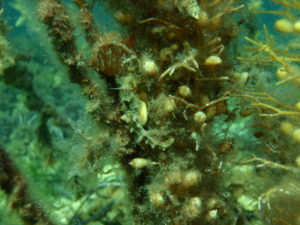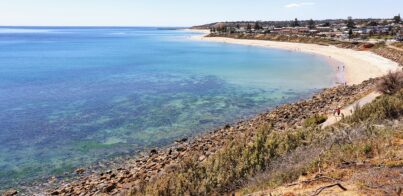(As published in the May 2020 newsletter of the Scuba Divers Federation of South Australia)
UN Sustainable Development Goal number 14 aims to “conserve and sustainably use the oceans, seas and marine resources for sustainable development”. Scientists have now put a 30-year plan together to achieve that aim. These scientists think that our underwater ecosystems can be restored and become thriving again despite issues such as climate change, plastic pollution and many other environmental concerns. Their plan points to the resilience of many marine species. They suggest that if these species are given a chance to recover, marine life can be replenished within a
generation. The research has been published in “Nature”.
To gauge the health of the oceans, the scientists investigated a wide variety of studies, reports and statistics. They found that 50% of marine life populations have suffered a decline over the last four decades.
They suggest nine key components form the basis of a recovery plan: salt marshes, mangroves, seagrasses, coral reefs, kelp, oyster reefs, fisheries, megafauna, and the deep sea. The researchers say that we need to focus on these key components, saying that salt marshes and sea grasses can lock away carbon in the atmosphere and mangroves have proven to be effective barriers against floods and waves.
They also pointed to previously successful conservation efforts to rescue species, such as elephant seals and green turtles, as evidence that all is not lost when it comes to keeping underwater ecosystems going. They also identified six “recovery wedges” to focus on: – protecting species, protecting spaces, harvesting wisely, restoring habitats, reducing pollution and mitigating climate change.
They said that if we get all of these wedges working together at scale, we should see an abundance of marine life recovery by 2050. (They stress that it is possible, but it will need a massive effort in terms of finances and international cooperation.)
They say that marine life “can flourish again and expand to support a growing human population on land. These ecosystems feed us, support us, and even keep us protected from unknown viruses. If we don’t act to guarantee the future of the world under the seas, then we don’t have much of a future ourselves.”
Marine scientist Carlos Duarte, King Abdullah University of Science and Technology (KAUST) in Saudi Arabia says, “We are at a point where we can choose between a legacy of a resilient and vibrant ocean or an irreversibly disrupted ocean. Our study documents recovery of marine populations, habitats and ecosystems following past conservation interventions. It provides specific, evidence-based recommendations to scale proven solutions globally.” Susana Agustí, a marine scientist from KAUST says, “Rebuilding marine life represents a do-able grand challenge for humanity, an ethical obligation and a smart economic objective to achieve a sustainable future.”



I guess “kelp ” is tantamount to “rock reef “,or I’d think the authors have overlooked a tenth key ecosystem (also noting that oyster reefs are not rocky reefs). Or maybe omitting rocky reefs as a key focus makes sense, as kelps are very often the climax canopy algae on healthy rock reef in temperate climes,so if a rock reef retains, or regains,good kelp cover that means that the reef as an ecological entity is in good condition .
Good article, anyway.
One more thing…the authors almost convey the impression that ongoing increase of the global human population is a desirable objective ,further underpinning the need to clean up our oceans. I trust they are simply resigned to the probability that the current lack of interest in population control, in most nations on most continents, isn’t likely to change anytime soon,and they are trying to keep their message simple and, dare I say, avoid controversy and the inevitable religious backlash (from most of the world’s mainstream religions) that the mention of population control would generate:)